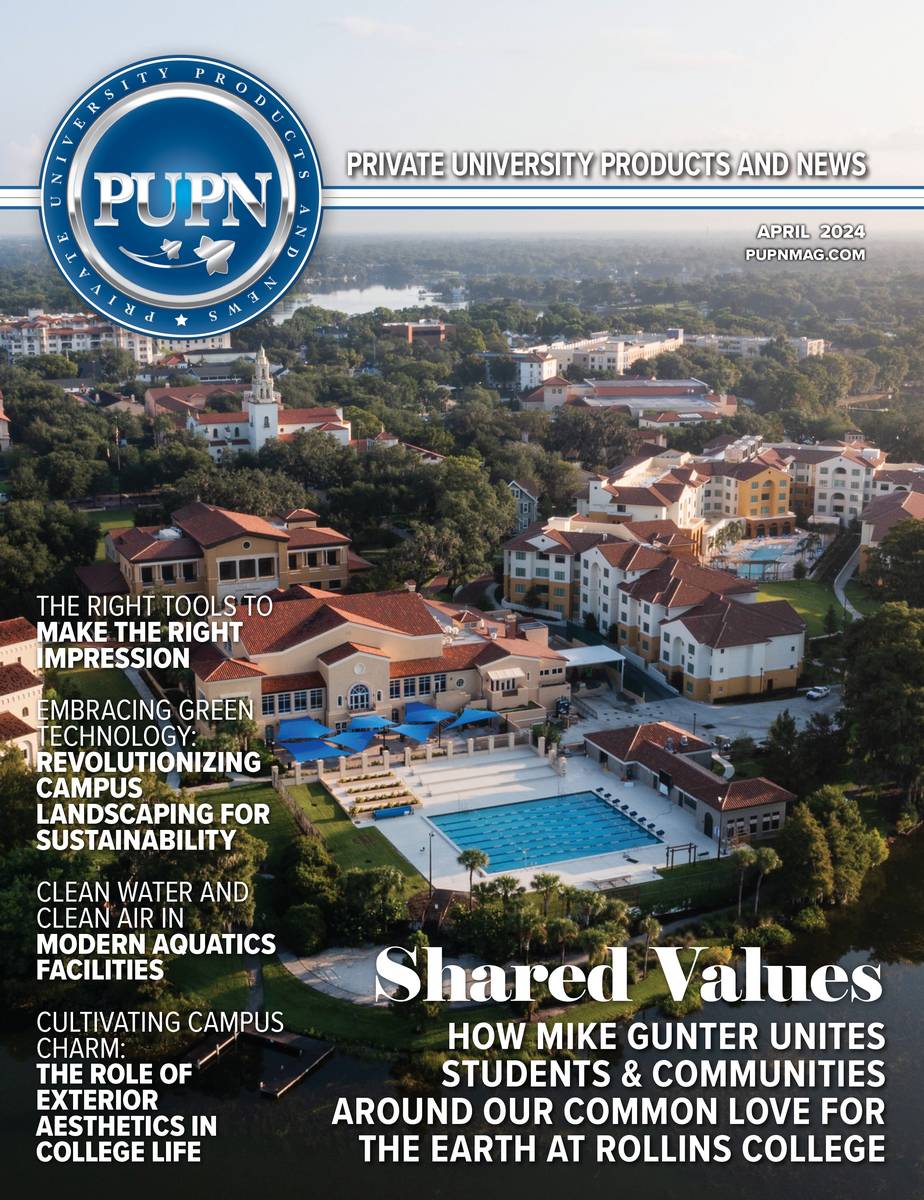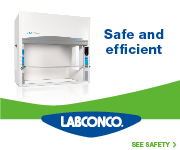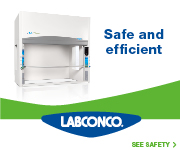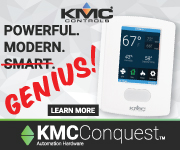Mobile device loaner programs can be a hassle to operate, however. Checking devices in and out—and making sure they are fully charged and in good working condition between usage—can consume many hours for IT or library staff if these processes are handled manually. Universities can address this challenge with an innovative, secure, and 100% automated solution. With a mobile device dispensing kiosk, private institutions throughout the United States can allow students to borrow nearly any type of laptop device without the overhead required by a manual checkout desk.
Barry University Slashes Wait Time for Computers
At Barry University, a private Catholic institution serving nearly 8,000 students in a suburb of Miami, laptop dispensing kiosks have dramatically reduced the amount of time that students have to wait for a computer, without taking up much additional space. In 2011, campus officials noticed that use of the university’s computer lab had dropped, with only about half of its seventy-two desktop computers being used at any given time. “Because we are always challenged for space, we looked at re-purposing that lab space and moving our computer lab to another location,” says John Baldwin, director of technology delivery.
Because so many students gather in the library to study, campus officials decided to move the computer lab there, with fewer machines. But space in the library was at a premium as well, so the new computer lab held only twenty-four computers. “As we monitored its use, we saw that it was very full—and students were often waiting to use a computer,” Baldwin notes. That situation prompted campus leaders to look at distributing mobile devices to students to satisfy the demand for computing time. “We wanted a solution that was easy to use and manage, with strong security,” he says. “We didn’t want someone physically checking out devices, because we didn’t want to incur staff time.”
Baldwin and his colleagues found just the right solution in automated kiosks. They installed the university’s first kiosk in the library in 2012. It held twenty-four laptops, loaded with the same software as the university’s desktop computers—effectively doubling the number of computers available to students. Students can check out a laptop for up to 24 hours, and they can take it anywhere they need to on campus.
“Soon after we installed the first kiosk, we started getting requests from students who asked: Why can’t we have this feature in other locations as well?” Baldwin says.
To satisfy these requests, the university placed two more 12-bay kiosks in student-centric locations on other parts of the campus in 2015. A few years later, as part of a laptop refresh, Barry University replaced its 24-bay kiosk in the library with a 12-bay kiosk and added another 12-bay kiosk at a fourth location. In 2021, in response to the COVID-19 pandemic, Barry University ordered three additional laptop kiosk systems. Together, these kiosks have handled tens of thousands of automated checkouts since the program’s inception. “It has been a great success,” Baldwin says of the program.
Impact on Staff Time is Minimal
The kiosks can be programmed to accommodate whatever local policies that campus administrators desire. At Barry University, there is no fee for late returns; instead, students get emails reminding them to return their device. If they don’t heed these reminders, the dean of students is notified. “Administration on the back end is very minimal,” Baldwin observes. The magic comes from automating the device checkout and return process. When a laptop is pushed back into an empty bay in the locked position, it is docked to a power source so it can recharge automatically. What’s more, colleges and universities can opt to license Deep Freeze or a similar program for restoring the laptop to its initial/pre-set state.
Once returned, the laptops communicate their presence through an RFID card reader built into every bay, and they also communicate their battery life to the company’s central server. A laptop will only be checked out when it exceeds the minimum battery life established by an administrator. Automatic notifications help administrators manage the loaner program as needed. For instance, an administrator can receive notification for late returns, bays that fail, or devices identified by end users as requiring service. Administrators also can visit the LaptopsAnytime website to view reports and entire logs of every event that has occurred at a kiosk. All transactions are recorded by a camera that is built into each kiosk, so administrators can identify users by face if there are any problems. Another unique feature is that the kiosks will distribute laptops to students on a rotating basis, so all units receive similar usage. This feature helps prevent some devices from receiving more wear and tear than others.
A Customized Solution for Every Institution
Automated dispensing kiosk systems can accommodate enterprise laptops from vendors such as Acer, Apple, Dell, HP, and Lenovo, as well as Chromebooks and iPads upon special request. Colleges and universities are responsible for purchasing the devices, and the company will deliver customized kiosks that can handle whatever devices an institution deploys.
Because the form factor for each device type and manufacturer is different (and tends to evolve fairly rapidly), institutions might need to have their kiosk bays retooled if they upgrade or refresh devices. Depending on what kind of service plan they choose, this service may be timed as a 3-year, 4-year or 5-year refresh included in the annual hardware agreement. For instance, Barry University is on a plan which includes a free SmartBay upgrade once every three years to account for its device refresh cycles. “We have gone through four different retoolings of our kiosks,” Baldwin says. “The service that LaptopsAnytime provides is excellent—we highly recommend it.”
Barry University has students authenticate checkout using their campus ID cards in conjunction with a password. The software driving the kiosks integrates with the university’s Active Directory database to identify students. To make sure students return the laptops to the correct kiosk, Barry University has taken advantage of the ability to brand each kiosk with customized graphics. The skins on the kiosks match those on the laptops they dispense, making it easy for students to remember which kiosk they borrowed their laptop from. Another innovation that Barry University is embracing is a ChargersAnytime Kiosk that dispenses Portable 110V Power Chargers that BYOD (Bring-Your-Own-Device) students can access anywhere on the University campus to power up their own devices at any time around the clock.
A Win-Win Scenario
Having access to the latest tools for learning is essential, and a student’s finances should not stand in the way of obtaining an education. With automated kiosks, Barry University is making sure that all students have access to the technology they need for success. Dispensing mobile devices through an automated kiosk gives students access to technology in a format that is convenient for them. This arrangement also saves space for institutions and doesn’t create a drain on staff time. The result is a win-win scenario for colleges and universities. Barry University represents one forward-thinking, innovative customer that shows how private institutions can transform their computing environments with an understanding of what is possible through implementing new and innovative technology systems.










